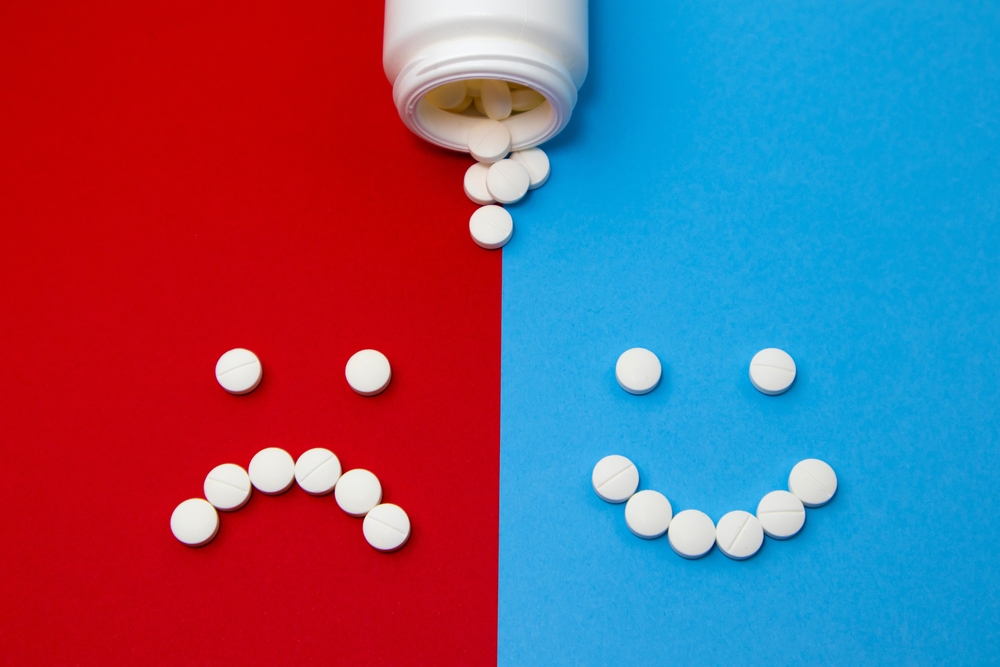Antidepressants are medications prescribed to help treat moderate to severe depression, and may also be used to treat other mental health ailments such as obsessive-compulsive disorder (OCD), generalized anxiety disorder (GAD), and more. Antidepressants are grouped into five different categories, and the two most common types of antidepressant medications prescribed to teenagers are SSRIs (selective serotonin reuptake inhibitors) and SNRIs (serotonin and norepinephrine reuptake inhibitors). SSRIs work by altering the brain’s chemical balance of serotonin (the chemical in one’s body that is directly related to one’s moods). SNRIs work to elevate one’s mood by interacting with both the serotonin and norepinephrine levels in one’s brain. The Food and Drug Administration (FDA) require antidepressant medications to clearly display a black box warning indicating the possibility of increased suicidal thoughts and behaviors when taken by some individuals under the age of 25. Teenagers should be closely monitored by the prescribing doctor especially at the beginning of any antidepressant trial. There are several side effects that may present when taking antidepressants (e.g., weight gain, dry mouth, headaches, insomnia, gastrointestinal symptoms, etc.). Although many of the unpleasant side effects subside in time, it is essential to be transparent with one’s prescribing doctor regarding the presence of any lingering adverse side effects. This will inform next steps, as it will provide the physician with needed insights regarding what necessary medication adjustments must be made and implemented into one’s treatment plan. Data shows that between 55% and 65% of young people do not respond to the initial antidepressant they take and are subsequently prescribed another medication. The use of antidepressant medications in the adolescent population, is not intended as, nor is it designed to be a life-long treatment. Still, some may choose to stay on them indefinitely, while others may only be on them for a short time. As is true with any mental health treatment for young people, treatment protocols and treatment plans will shift over time to accommodate one’s changing needs, including the use of antidepressant medications. The length of time a teenager may be on antidepressants will depend on a variety of contributing factors.
For Information and Support
Every family in need of mental health treatment must select a program that will best suit the needs of their family. When one member of a family struggles, it impacts everyone in the family unit. To maximize the benefits of treatment we work closely with the entire family to ensure that everyone is receiving the support they need through these difficult times. Seeking help is never easy, but you are not alone! If you or someone you know needs mental health treatment, we strongly encourage you to reach out for help as quickly as possible. It is not uncommon for many mental health difficulties to impact a person’s life, long term. Pursuing support at the beginning of one’s journey can put the individual in the best position to learn how to manage themselves in a healthy way so they can go on to live happy and fulfilling lives.
OUR KNOWLEDGEABLE ADMISSIONS TEAM CAN BE REACHED 24/7 AT INFO@PACIFICRTC.COM OR CALL: 800-531-5769






